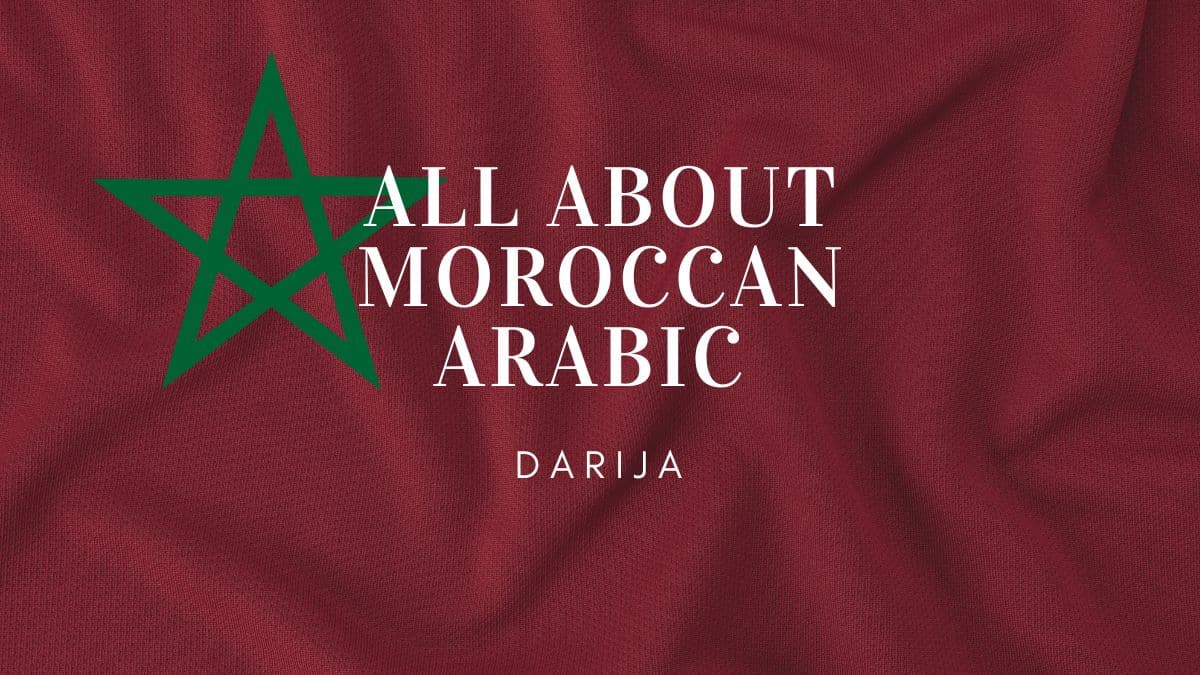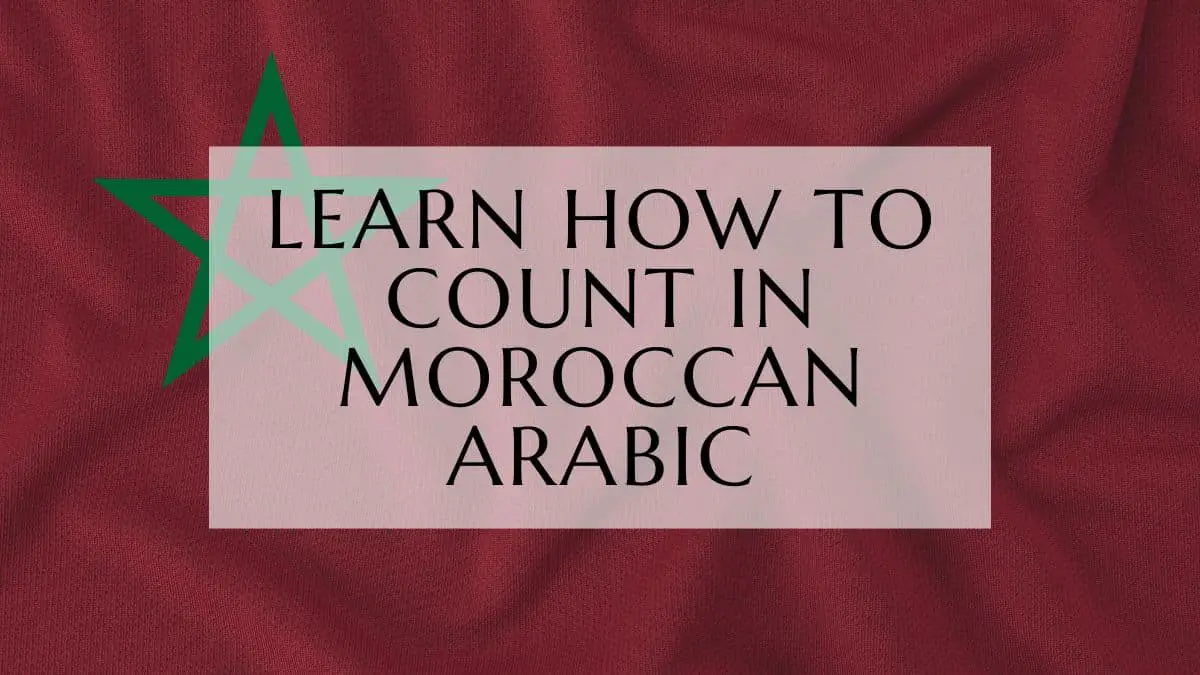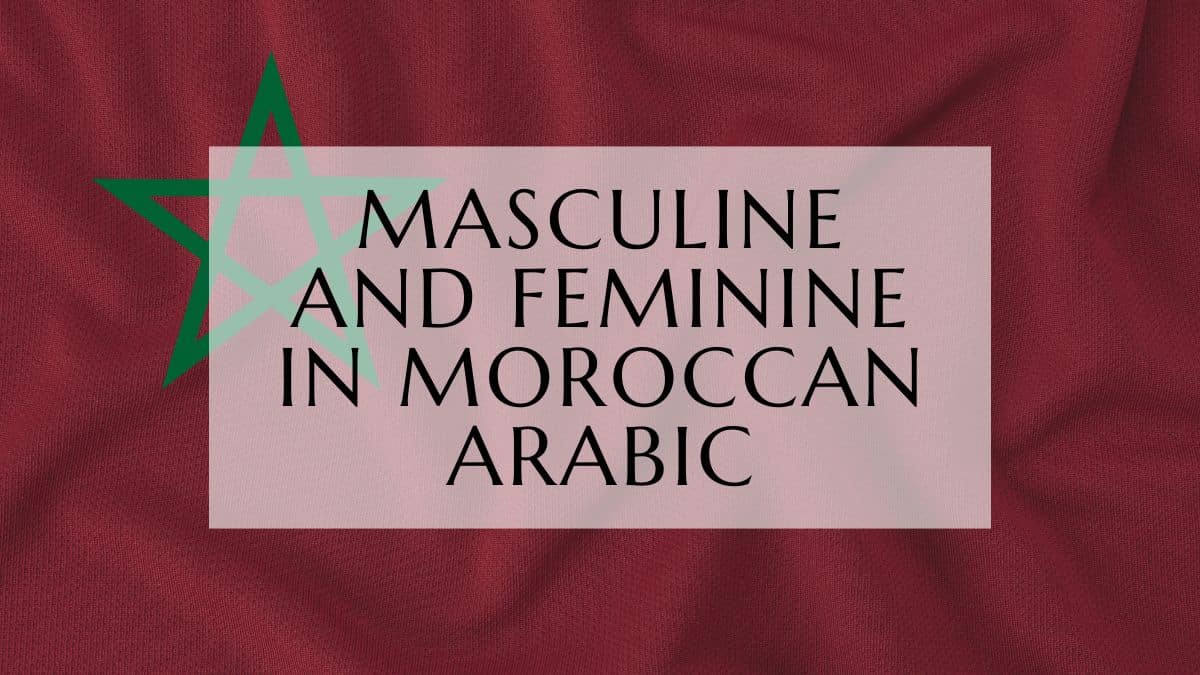In this lesson, we will talk about the loanwords in Moroccan Arabic, which Darija borrowed from other languages, such as French and Spanish, so if you already know one or both, this one is for you.
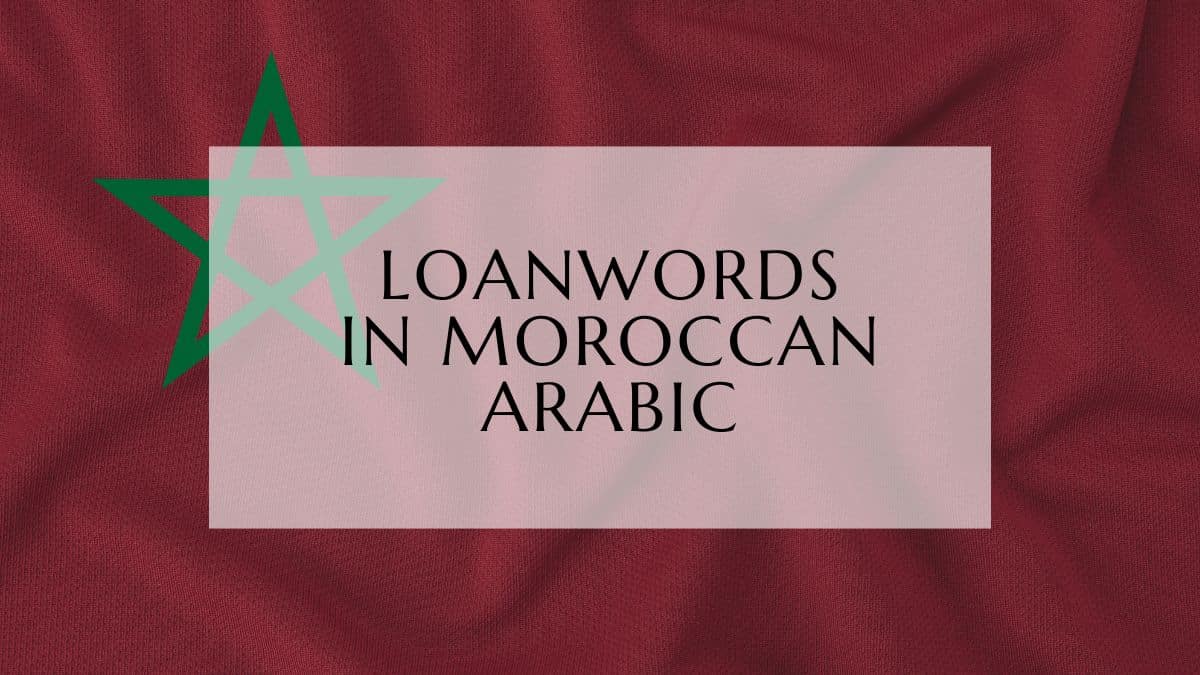
Spanish Loanwords In Moroccan Arabic
Blasa بلاصة (ES plaza) place
Bocadio بوكاديو (ES bocadillo) sandwich, which is also used
Cama كامة (ES cama) bed, only used in the north
Fabor فابور (ES favor) used to say «for free»
Factura فاكتورة (ES factura) the bill
Falso فالصو (ES falso) false/not original
Fishta فيشطة (ES fiesta) ceremony
Fondoفوندو (ES fondo) bottom of the swimming pool or the sea
Karrosa كروسة (ES carroza) trolley
Kumir كومير (ES comer) to eat in Spanish but Moroccan use the word kumir for the Parisian bread
Kurda كوردة (ES cuerda) rope
Kuzinaكوزينة (ES cocina) kitchen
Manta مانطة (ES manta) blanket
Mario ماريو (ES el almario) the closet
Playa بلايا (ES Playa) beach
Rwida رويضة (ES Rueda) wheel
Semana سيمانة (ES Semana) week
Note: you can practice what you’ve learned here, and learn how to pronounce each of the words in our Memrise course here, don’t know how to use the platform or sign up? we’ve got you covered in this easy-to-follow tutorial here.
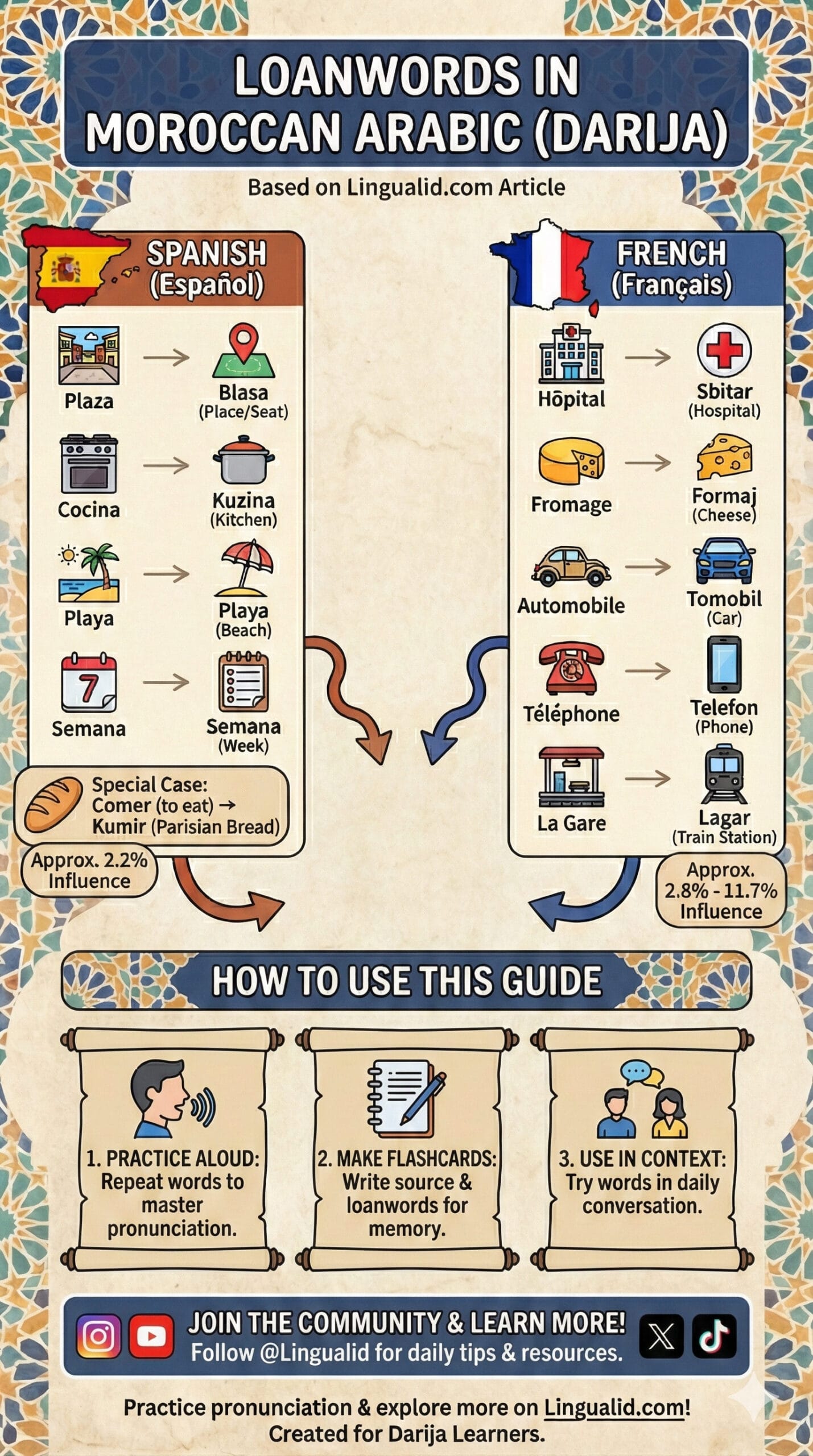
French Loanwords In Moroccan Arabic
Bakiya باكية (FR paquet) package
Banka بانكة (FR banque) bank
Batoباطو (FR bateau)
Bertma برطمة (FR appartement) apartement
Beshklita بشكليطة (FR bicyclette) bike
Bolis بوليس (FR police) police
Bombiya بومبية (Fr pompiers) firefighters
Brika بريكة (FR briquet) lighter
Bwata بواطة (FR boite) box
Formaj فرماج (FR fromage) cheese
Forshita فورشيطة (FR fourchette) fork
Garaj جاراج (FR garage)
Grafata كرافاطة (FR cravate) tie
Lagar لاغار (FR la gare) train station
Lbosta لبوسطة (la poste) the poste office
Plakar بلاكار (FR placard) cupboard
Rompwan رمبوان (FR rondpoint) traffic circle
Sbitarسبيطار (FR hôpital) hospital
Serbita سربيتة (FR serviette) napkin
Tabla طابلة (FR table) table
Telefon تيليفون (FR téléphone) telephone
Tilifision تيليفيزيون (FR télévision) television
Tobisطوبيس (FR autobus) bus
Tomobil/tonobil طوموبيل/طونوبيل (FR automobile) car
Tranتران (train) train
Zizwar زيزوار (FR rasoir) shaver
Moroccan Arabic Loanwords: A Study Guide
Quiz
Instructions: Answer the following questions in 2-3 sentences each.
- What is a loanword?
- From which two European languages does Moroccan Arabic borrow a significant number of words?
- Provide two examples of Spanish loanwords in Moroccan Arabic and their original Spanish counterparts.
- Provide two examples of French loanwords in Moroccan Arabic and their original French counterparts.
- What is the Moroccan Arabic word for “sandwich” and from which language does it originate?
- What is the Moroccan Arabic word for “hospital” and from which language does it originate?
- How does the meaning of the Spanish loanword “comer” differ in its Moroccan Arabic form, “kumir”?
- What resource does the article suggest for practicing the pronunciation of Moroccan Arabic loanwords?
Answer Key
- A loanword is a word adopted from one language (the donor language) and incorporated into another language (the recipient language) without translation.
- Moroccan Arabic borrows significantly from both Spanish and French.
- Examples include “blasa” (place) from “plaza” and “factura” (bill) from “factura.”
- Examples include “garaj” (garage) from “garage” and “telefon” (telephone) from “téléphone.”
- The word for “sandwich” is “bocadillos,” originating from Spanish.
- The word for “hospital” is “sbitar,” originating from French “hôpital.”
- While “comer” in Spanish means “to eat,” in Moroccan Arabic, “kumir” refers specifically to Parisian bread.
- The article suggests a Memrise course for pronunciation practice.
These were some of the many words that Darija borrowed from Spanish and French, some that we have already seen before in the nouns list, if you know other ones, feel free to comment them below.
Happy learning!
Oualid Cheddadi is the founder of Lingualid, a platform that inspires independent language learners worldwide, regardless of the language they are learning. The name “Lingualid” is derived from the Portuguese word for “language,” “língua,” and the last three letters of Oualid’s name, “Lid.”


